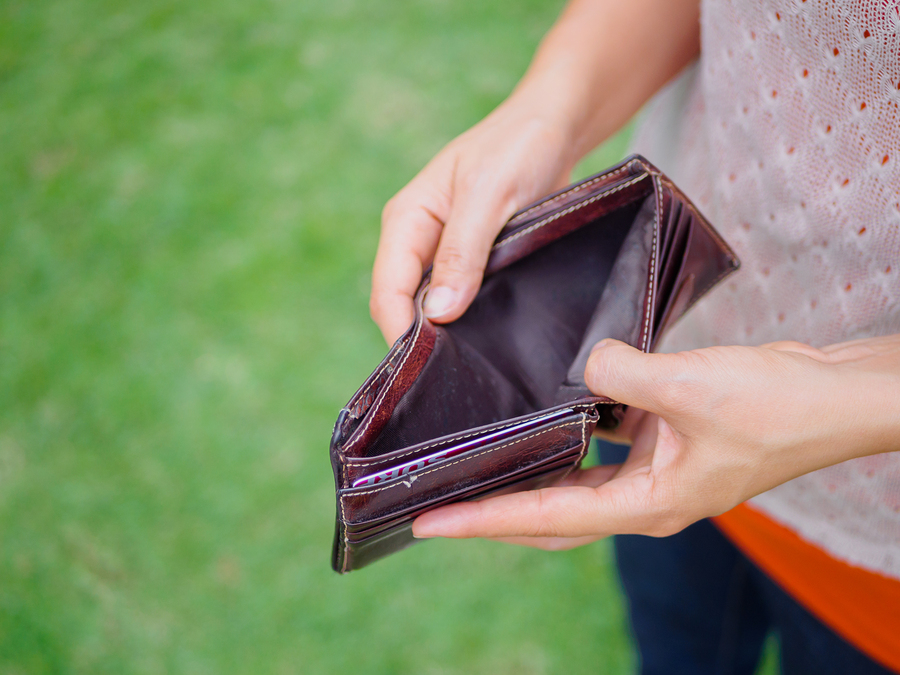6 Important Decisions To Make If You Want To End the Paycheque-to-Paycheque Cycle
Living from paycheque-to-paycheque is one of the biggest causes of stress, especially when you’re trying to provide for the whole family.
According to an article published by canstar.com.au, one out of three Australians are left penniless by payday. Some say this is because of poor planning, while some contribute this to impulsive buying.
If you have a steady job with a continuous stream of income, then that’s great. But what happens when natural disasters or unforeseen events occur? Without money saved up for the rainy days, how can you and your family cope?
I’ve been there. I’ve lived the paycheque-to-paycheque lifestyle and it wasn’t pretty when we lost our house in a flood. I could have saved some cash. I could have suffered a little each month. I could have.. I should have.
When I started working at SAHM, I learned a lot about being frugal, prioritising needs over wants and having a budget. It’s a struggle to end the paycheque-to-paycheque cycle, but it’s totally doable!
I don’t want to bore you with cliché advice so we looked around Reddit for practical and sensible stories told by real people. Here’s how they effectively ended the paycheque-to-paycheque cycle and got on top of their finances.
1. Budget
Create a budget out of your personal or household income. Whether it’s a daily, weekly or monthly budget, that’s up to you. But the very first step in ending that paycheque-to-paycheque cycle is mapping out your expenses and being self-aware. Budgeting is a great way to make sure that all your monthly expenses are taken care of before you splurge on things you don’t need.
Definitely need a budget, first and foremost.
My trick is that I round my expenses UP, and I round my income DOWN. If you set aside money for your bills, always set aside more than you need and then forget about it. You will always have extra money for surprise expenses.
Set yourself aside an amount of spend money. If you’re really bad, take cash and leave your credit/debit cards at home.
Part of your budget should include savings. Either short term or long term, depending on your needs at the time. Keep in mind that getting out of the “pay check to pay check” is not an overnight thing and can take years, but you have to start somewhere.
Stop being surprised by regular large payments. You know Christmas happens every year. It should never be a surprise that you have Christmas related expenses. You know you car registration happens once a year. You know your car should be serviced at least once a year. None of these are unexpected costs but people treat them like they are. You can save for these things all year round by taking the total cost (eg $1000 for registration is under $20/week).Make a budget and stick to it. Do you actually know what you spend your money on? If you don’t, there’s a big chance you’re wasting a lot. Coffee or soda every day, eating out for work lunches, ordering in multiple times a week adds up like crazy. Quit it. Or at least if you can’t quit it, budget for it, and spend less money in other places.
Pay bills: when you get your paycheck, pay a portion of your bills (or set specific amounts aside for car payments, rent, etc.)
Pay for necessities: buy groceries, etc.
Save: put a significant portion of what is left in savings, with the intention that you will not touch it for a while unless you absolutely need to (can also be a rainy day fund, but it’s best to keep that separate if you can).
Spend: now that all of your necessities are taken care of and you aren’t behind on any payments, spend what you have left on what you want. This should be a fraction of your original paycheck, not 80% (unless you already have a ton saved up and have no bills).
Most important: make a budget. It’s worth money to go to a conference or someone if you need help in that area. Stick with it, and make bills your priority. Accept that you may have to make sacrifices, and if you can’t handle a credit card get rid of it. Know how much is reasonable to spend on groceries, car payments, etc and know where every dollar is going.
2. Downgrade
Having a lifestyle downgrade can be difficult, so you’ll have to start slowly. Reassess your expenses so you’ll know what you spend the most on, and which ones can you live without.
Monk Month: live as ascetically as possible for one month. Buy only the cheapest possible food, drink only tap water. Turn of all electric devices you don’t absolutely need. Bike/walk to work. In spare time read books. By the end of it, you’ll probably be healthier, slimmer, calmer, more relaxed and save about 20% of your paycheck at least.
Living paycheck to paycheck is easy to do when you’re living beyond your means, and living beyond your means is easy to do when the expectation is that you’re going to have the latest phone, nice clothes, a car, etc.
If you learn to live with less, you can take what you’d otherwise pay for those “finer things” and sock it away in the bank. It’s certainly not an easy thing to do; people like having stuff, they like looking like they’re better off than they really are, because other people judge them otherwise. Getting over that judgment is key.
Make more, spend less.
If you have to go into debt to buy something (except perhaps a place to live), you can’t afford it. Stop paying high interest rates on silly crap like an Xbox you put on a credit card charging 20%, that you make the minimum payments on each month.
Figure out the difference between want and need. A cell phone may be a need nowadays, but the latest iPhone is a want.
Stop eating out so much, stop eating out for lunch at work, period.
Realise those people that seem to have it “all” are probably living paycheck to paycheck too…quit trying to be like them.Sometimes it takes effort to get ahead in life. Instead of sitting around at night and on the weekends, get a 2nd job.
I went to a very affordable college on scholarship, always lived below my means, never blew money on drugs/alcohol/movies/bars/other expensive stuff, worked my ass off extra hours when I was young to avoid debt when I could, and now…
…I’m in good shape. I mean, I’m not a rich person, but I don’t have a car payment, I have a nice house, and I can afford what I want.
In other words, I sacrificed my social life in my 20’s to live the rest of my life in relative comfort. No regrets.
3. Trick yourself into thinking that you have less
This one is a favourite trick of mine. It’s effective – but will take some time to practise. I trick myself into getting to work early by setting my time 5 minutes advance. I trick myself into thinking I have 50 dollars a week when I can actually afford 80.
My favorite trick is upping the savings by a dollar a week. One dollar the first week, two the second, etc. You’re never saving more than 52 dollars per week, so it feels like nothing, but it adds up to quite a bit. Not huge, retirement savings amounts, but it gets you in the habit, and it’s something.
I’ve never gotten to “life or death,” or ever even completed the year long cycle without needing the money, but if you don’t have emergency funds, it really is good. Sometime within the first couple years, you probably will say “wow, I’m glad I had that $X00 or $X000 saved, so this was a minor savings setback instead of a complete financial disaster.”
Agreed You can also automatically set some aside and trick yourself into believing you are living paycheck to paycheck. Direct deposit a portion of the paycheck into the alternate account. Some people pay more taxes so they get a bigger tax refund (financial advisers don’t recommend it but it works).





